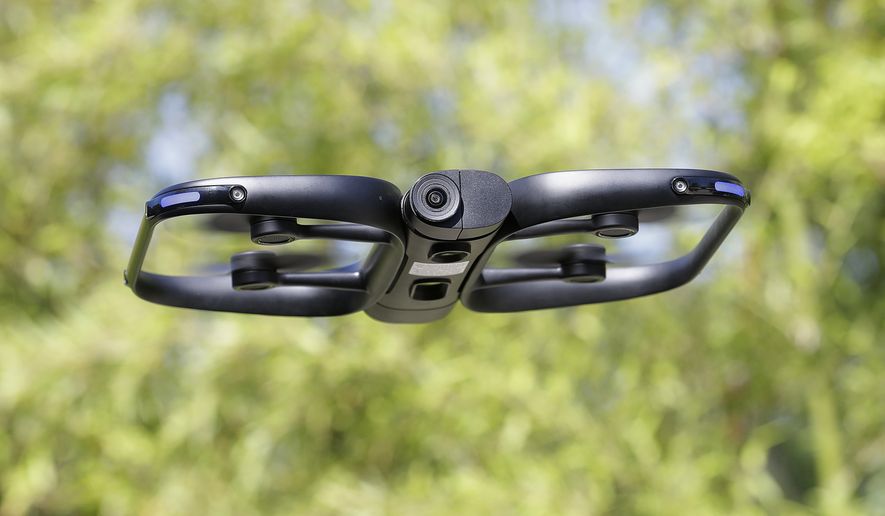A new bipartisan bill would criminalize modifying drones with weapons or using them to interfere with police and the military.
The four lawmakers behind the bill said criminal penalties are necessary to ensure the safety and security of Americans threatened by the abuse of unmanned technology.
The Drone Act of 2022 would ban people from attaching a weapon to a drone, from removing identification numbers and anti-collision lights from drones, and from using drones to interfere with law enforcement, the military, or emergency-response activity.
It also would impose a 10-year prison sentence on people convicted of flying contraband into prison via a drone.
“This legislation would help prevent increased risks to public safety and national security that are associated with drones by creating comprehensive federal criminal law prohibiting their most dangerous uses,” Reps. Dina Titus, a Nevada Democrat involved in the effort, said in a statement. “Most importantly, it would expressly prohibit attaching a weapon to a drone.”
Mr. Titus was joined in drafting the bill by fellow Democrat Josh Gottheimer of New Jersey and Republican Reps. Mike Gallagher of Wisconsin and Peter Meijer of Michigan.
SEE ALSO: House Dems assert that Jan. 6 hearings will tell story in ‘apolitical, ‘nonpartisan’ way
Usage of drones is growing, as is the deployment of drones in restricted places. The draft bill said 766 drone sightings occurred in restricted airspace during the first half of 2021 and there were 875 such sightings in all of 2020.
The military and law enforcement are in the market for drones and robots. For example, Ghost Robotics exhibited its four-legged robots at a military expo in Washington last month and has hired lobbyists to help the company attract new customers.
A handout from the company showed U.S. and allied nations’ militaries and defense entities as partners of Ghost Robotics, whose products can be outfitted with weapons. In February, the Department of Homeland Security said it worked with Ghost Robotics and would use its robots to help patrol the southwest border.
The Drone Act of 2022 makes exceptions for government-authorized or otherwise licensed activities such as avalanche mitigation.
Measures to restrict the weaponization of drones used domestically by American federal agencies have faced a rocky road. In 2012, an effort to prevent DHS from using taxpayer funds to purchase and operate unmanned aerial vehicles passed the House but was later excluded from an appropriations bill that became law.
Making certain that the federal government has lawful access to drone technology and that bad guys do not was an important consideration for the legislation, according to Mr. Meijer.
“We must ensure that bad actors cannot use drones to facilitate illegal activity and cause harm to our society, and this is especially important at our southern border where drug and human traffickers are known to use drones to commit crimes and bolster their operations,” he said in a statement.
Mr. Gottheimer pointed to terrorists using advanced technology as a reason for the legislation and specifically cited “confronting the threat of lone wolf ISIS-inspired terrorists” as part of his motivation for working on the legislation.
• Ryan Lovelace can be reached at rlovelace@washingtontimes.com.




Please read our comment policy before commenting.